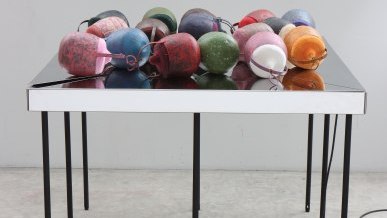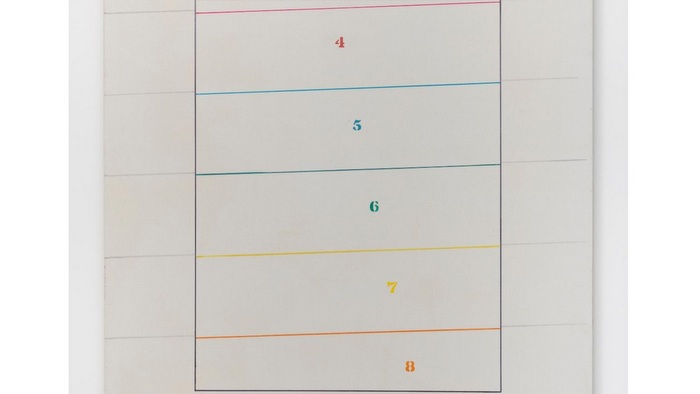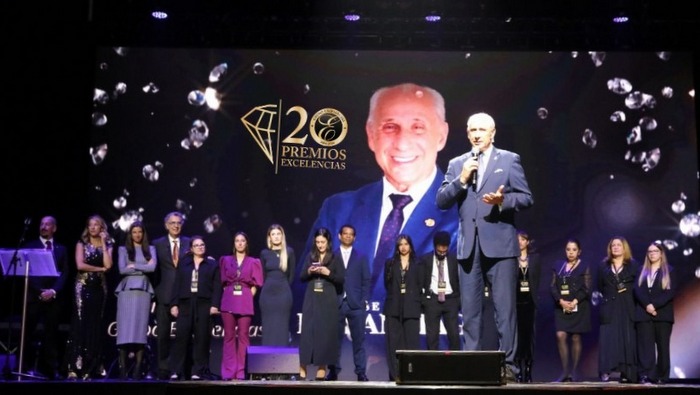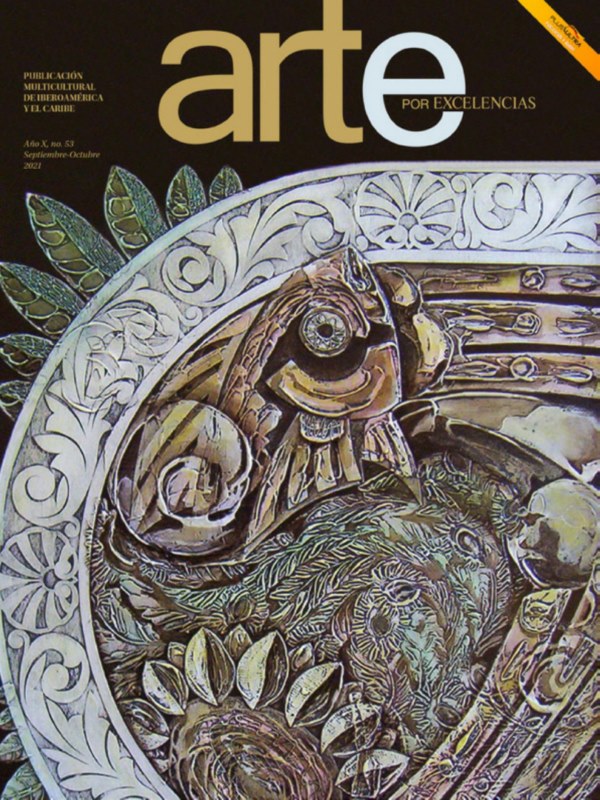Curated by Adriano Pedrosa and Rodrigo Moura, the exhibition artevida (artlife) examines the relationships between art and life in the late 1950s, 1960s 1970s, and early 1980s taking Brazilian, and particularly Rio de Janeiro, art practices from that period as a point of departure (Lygia Pape's, Lygia Clark's and Hélio Oiticica's, among others) and takes places in four venues in Rio de Janeiro.
artevida is divided into four sections. artevida (corpo) (body), at Casa França-Brasil, comprises subsections around the self-portrait, the body in transformation, and the cut; the organic line and weave as alternatives to the grid and orthodox geometric abstraction; interactive, articulated, and participatory works. artevida (política) (politics), at Museu de Arte Moderna do Rio de Janeiro, gathers works made in resistance to authoritarian regimes, around topics such as feminisms and racism, democracy and elections, maps and flags, war and violence, strikes and revolutions.artevida (arquivo) (archive), at Biblioteca do Estado do Rio de Janeiro, features selections from two artists' archives, Recife-based Paulo Bruscky (curated by Cristiana Tejo) as well as Rosario-based Graciela Carnevale. artevida (parque) (park), at Escola de Artes Visuais do Parque Lage, Cavalariças and the surrounding park, includes works by Martha Araújo, Tsuruko Yamazaki and the single new commission of the exhibition, by Georges Adéagbo.
artevida proposes to establish connections and read certain art practices from the period through different concepts, references and frameworks beyond the well-known Eurocentric ones. The exhibition draws links and correspondences between multiple artworks and documents, challenging canonical histories and focusing on artists from the Global South, as well as on female artists. It does not attempt to write a single, coherent, progressive history, but rather more plural, open and diverse narratives, neither tracing genealogies between artists, nor identifying antecessors and predecessors, let alone to be encyclopedic. As such, artevida is more fragmented than monolithic, provisional than definite.
A catalogue will be published following the exhibition and a conference will be held on September 5–6 at Biblioteca Parque Estadual do Rio de Janeiro.
artevida is commissioned by the Rio de Janeiro State Culture Secretariat and organized by curators Adriano Pedrosa and Rodrigo Moura. The exhibition has been made possible through support by sponsors Itaú and Petrobras.
Artists in the exhibition
Abdul Hay Mosallam, Alejandro Puente, Ana Mendieta, Anna Bella Geiger, Anna Maria Maiolino, Annegret Soltau, Antonio Caro, Antonio Dias, Antonio Manuel, Aref Rayess, Arquivo (Archive) Graciela Carnevale, Arquivo (Archive) Paulo Bruscky, Artur Barrio, Atsuko Tanaka, Beatriz González, B?la Kolá?ová, Bhupen Khakar, Birgit Jürgenssen, Carlos Ginzburg, Carlos Leppe, Carlos Vergara, Carlos Zilio, Cecilia Vicuña, Cengiz Çekil, Charlotte Posenenske, Cildo Meireles, Claudio Perna, Cláudio Tozzi, Clemente Padín, Dóra Maurer, Eduardo Terrazas, Edward Krasi?ski, Eleanor Antín, Emory Douglas, Esther Ferrer, Eugenio Espinoza, Franz Erhard Walther, Gavin Jantjes, Gego, Georges Adéagbo, Geta Br?tescu, Gina Pane, Goran Trbuljak, Gülsün Karamustafa, Hassan Sharif, Heidi Bucher, Helena Almeida, Hélio Oiticica, Hitoshi Nomura, Horacio Zabala, Iole De Freitas, Ion Grigorescu, Jiro Takamatsu, Jo Spence, John Dugger, Josip Vaništa, Juan Carlos Romero, Judy Clark, Julio Plaza, Jürgen Klauke, Keiji Uematsu, Letícia Parente, Liliana Porter, Lotty Rosenfeld, Luis Camnitzer, Luis Fernando Pazos, Lygia Clark, Lygia Pape, Lynda Benglis, Margarita Paksa, Marisa Merz, Martha Araújo, Martha Rosler, Mathias Goeritz, Maurício Nogueira Lima, Mladen Stilinovi?, Mohsen Vaziri-Moghaddam, Monir Shahroudy Farmanfarmaian, Nancy Spero, Nasreen Mohamedi, Nicola L., Nil Yalter, Olga De Amaral, Oscar Bony, Paulo Bruscky, Rachid Koraïchi, Rasheed Araeen, Regina Vater, Ricardo Carreira, Rosemarie Castoro, Saburo Murakami, Saloua Raouda Choucair, Sanja Ivekovi?, Senga Nengudi, Seung-Taek Lee, Sue Williamson, Teresa Burga, Teresinha Soares, Tomislav Gotovac, Tsuruko Yamazaki, Ulay, Wanda Pimentel, Wesley Duke Lee, Yoko Ono, Yvonne Rainer, Zarina Hashmi, Zilia Sánchez
Related Publications

Galerie Lelong & Co.: Pinaree Sanpitak
November 01, 2024
The Art Show: Castelli Gallery
October 31, 2024











